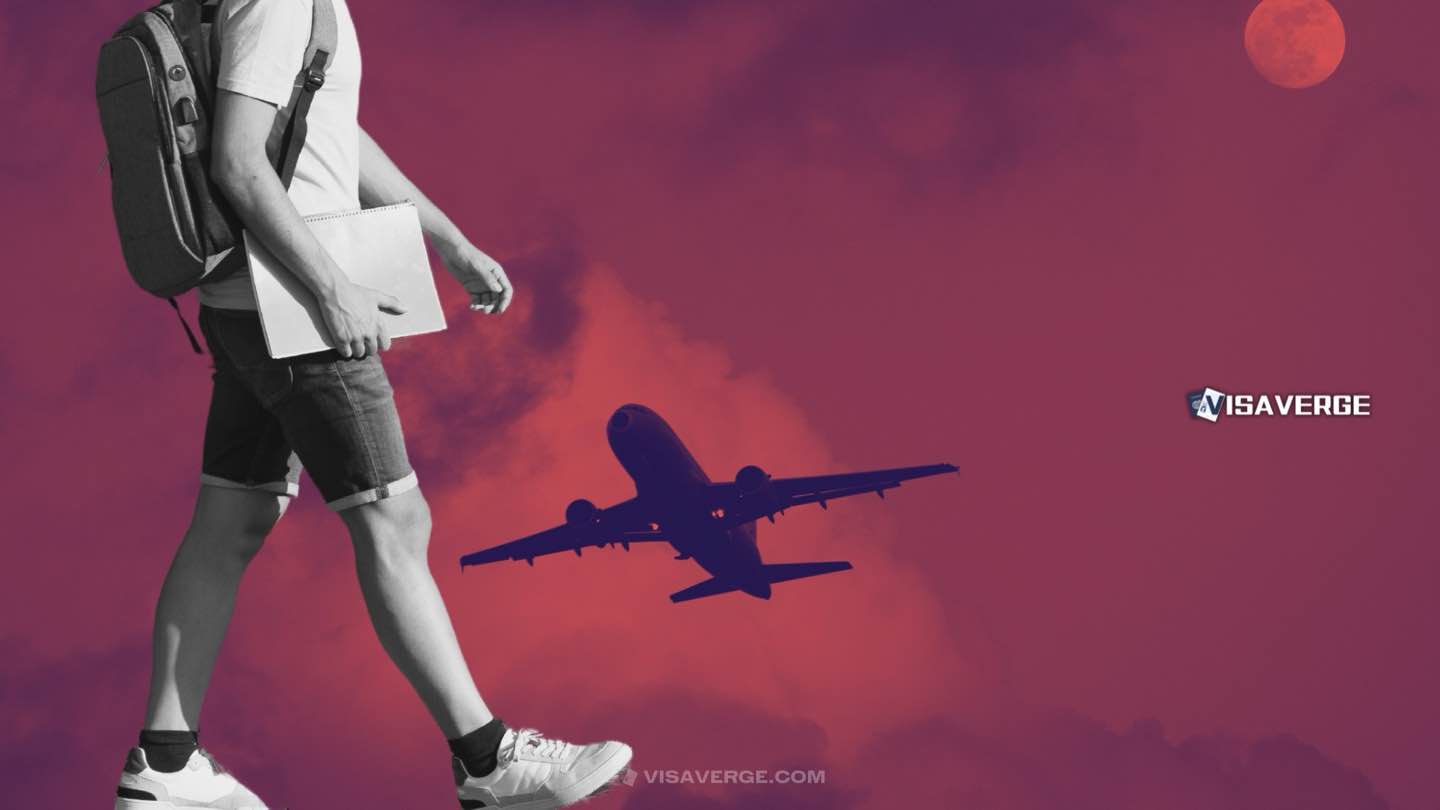(INDIA) An Indian professional who spent 15 years in the United States returned home and says “unfair competition” in India is draining his drive to excel. That claim has struck a nerve among returnees debating whether life back home can match the stability and merit-based systems they experienced abroad.
He contrasted India’s job market and public services with the “fairness of opportunity” he felt overseas, where hard work and skill more clearly determined outcomes.

Returnee experiences: common themes
His story mirrors a wave of social posts from returnees describing:
- The jolt of coming back to India’s crowded job market
- Slower public services
- Persistent worries about healthcare, pollution, and corruption
One man who moved back after six years in Canada said being near family mattered, yet almost everything else felt off—from work culture and lifestyle to motivation. Another, returning from the United States, posted a viral list of “harsh realities,” citing fragile healthcare access, daily exposure to pollution, and socio-political stress that fed regret after relocating.
These accounts are personal and not universal. Still, they echo a pattern: returnees often expect that career progress, safety nets, and public systems will function roughly as they did in North America or Europe. When those expectations aren’t met, frustration builds.
- Some social media users say expecting a Western lifestyle in India is unrealistic.
- Others argue that after years abroad people simply hope for basic fairness and room to grow without favoritism or red tape.
Mounting frustration among returnees
Across finance, tech, and healthcare, returning professionals describe:
- Stalled interviews, opaque hiring, and informal gatekeeping that amplify the sense of “unfair competition.”
- A senior engineer who led teams in the US struggled to secure roles matching his skills despite strong references.
- A healthcare worker highlighted scramble for quality care during family emergencies, saying the system’s patchy reliability weighed as much as salary.
Several returnees also report loneliness after leaving overseas communities where local groups, employers, and city services made it easier to settle. Back in India they found thinner support networks and longer waits for basic tasks:
- Getting a specialist appointment
- Fixing utilities
- Navigating school admissions
For those with children, the gap between expectation and reality can be sharp—especially when education costs rise while class sizes stay large.
Money isn’t the only driver. Many returned to:
- Care for parents
- Raise kids with extended family
- Reconnect with language and culture
That emotional pull is powerful. But when daily life becomes a pile-up of small frictions—traffic, inconsistent services, and perceived favoritism—some say the joy of being close to loved ones competes with growing resentment.
Policy context and practical steps
India has seen visible gains: faster digital services, rising startup energy, and new infrastructure in major cities. Employers point to global roles based in Bengaluru, Hyderabad, and Pune, and say returnees bring prized experience that can lift local teams. That promise is real, yet the adjustment curve remains steep.
If you’re weighing a move back, planning can reduce shocks. Recommended practical steps:
- Clarify job offers in writing
- Include pay, title, and scope
- Ask about decision timelines and interview steps to avoid the feeling of informal gatekeeping
- Map healthcare options before arrival
- Identify hospitals, specialists, and emergency routes near parents and children
- Keep a list of contacts and insurance approvals
- Budget for transitional costs
- Rent deposits, school fees, car purchase or transport, and several months of savings while you look for work
- Build a support circle early
- Use alumni groups, professional associations, and neighborhood networks
- Choose location based on commute and air quality, not just pay
- Shorter commute and cleaner air often boost morale more than a small salary increase
According to analysis by VisaVerge.com, return migration decisions often blend economics with family needs, and expectations formed abroad can collide with the local pace of hiring, housing, and healthcare. The site notes that people who prepare for slower timelines and set clearer job targets tend to report better outcomes.
Government programs touch parts of this journey. The Ministry of External Affairs supports research on migration and return through initiatives such as the India Centre for Migration, which studies labor flows and reintegration. An official overview is available on the MEA site at India Centre for Migration – Ministry of External Affairs.
While these resources don’t remove day-to-day pressures, they signal policy attention to mobility trends and the experience of coming home.
Employers’ perspective and the fairness question
Employers say they face constraints too:
- Legacy processes, budget cycles, and high applicant volumes that slow hiring
- These factors can create the impression of preference-based decisions
Some executives argue that skills-based interviews and transparent salary bands are expanding, especially in tech and multinational firms. Still, returnees often judge progress by how a single hiring cycle feels, not by long-term trends.
The fairness question runs deeper than job offers. When people abroad describe systems as fair, they mean:
- Clear rules
- Reliable services
- Predictable outcomes
When returnees in India complain of “unfair competition,” they often point to how small advantages—who you know, which queue you join, which phone call gets answered—seem to matter as much as skill. That perception can sap drive, especially for those who built careers in environments where rules felt steady.
Mixed outcomes and decision guidance
Not everyone shares a negative view. Many professionals come back, find strong roles within months, and thrive. They credit:
- India’s energy
- Family ties
- Rapid growth
They say the country rewards self-starters who push through noise and build local credibility. Both experiences can be true; India’s scale means progress and problems often sit side by side.
For families still abroad, the viral stories serve as both caution and comfort:
- They warn that moving back may be harder than remembered
- They remind people that ties to parents, culture, and community are powerful anchors
The decision rarely turns on one factor. It’s an equation involving:
- Career path
- Health needs
- Children’s schooling
- Air quality
- Caregiving duties
- Personal resilience
If you decide to return, set a timeline for review—say, 12 to 18 months—to assess whether work, health, and family goals are on track. If not, consider adjustments:
- Move to a different city
- Seek a hybrid role with a global firm
- Consider a temporary move back overseas
Keeping options open can preserve confidence and reduce the sense that one choice must fix everything at once.
The man who lamented “unfair competition” sparked a broader conversation about dignity—feeling that effort counts and rules apply evenly. Whether India can deliver that experience more consistently will shape how many citizens abroad decide to come home, stay, and build the future they imagined when they booked a one-way ticket back.
This Article in a Nutshell
A professional who spent 15 years in the United States returned to India and publicized concerns about “unfair competition,” igniting wider debate among returnees. Many report similar frustrations: crowded job markets, slower public services, irregular healthcare access, pollution, and perceptions that connections or favoritism influence outcomes. Some returnees still find advantages in family ties, cultural closeness, and vibrant startup ecosystems in cities like Bengaluru, Hyderabad, and Pune. Experts and VisaVerge analysis recommend clear written job offers, mapping healthcare before arrival, budgeting for transitional costs, and building support networks. Government initiatives, such as the India Centre for Migration, show policy attention, but practical frictions remain. Setting a 12–18 month review period can help returning families evaluate whether their professional, health, and family goals are being met and consider adjustments like relocation or hybrid roles.














if this has been the first time he has been working or trying to work in India welcome, we have been seeing this work culture in India since a long time, TL showing certain favors towards certain employees and girls. always trying to pull other peoples lets interfering in other peoples personal life nothing new unfair competition well that has always been there. those with 15 yrs educated and non formal and non 15 years educated people. do you think we would get job if we apply now so far nothing. lets see.